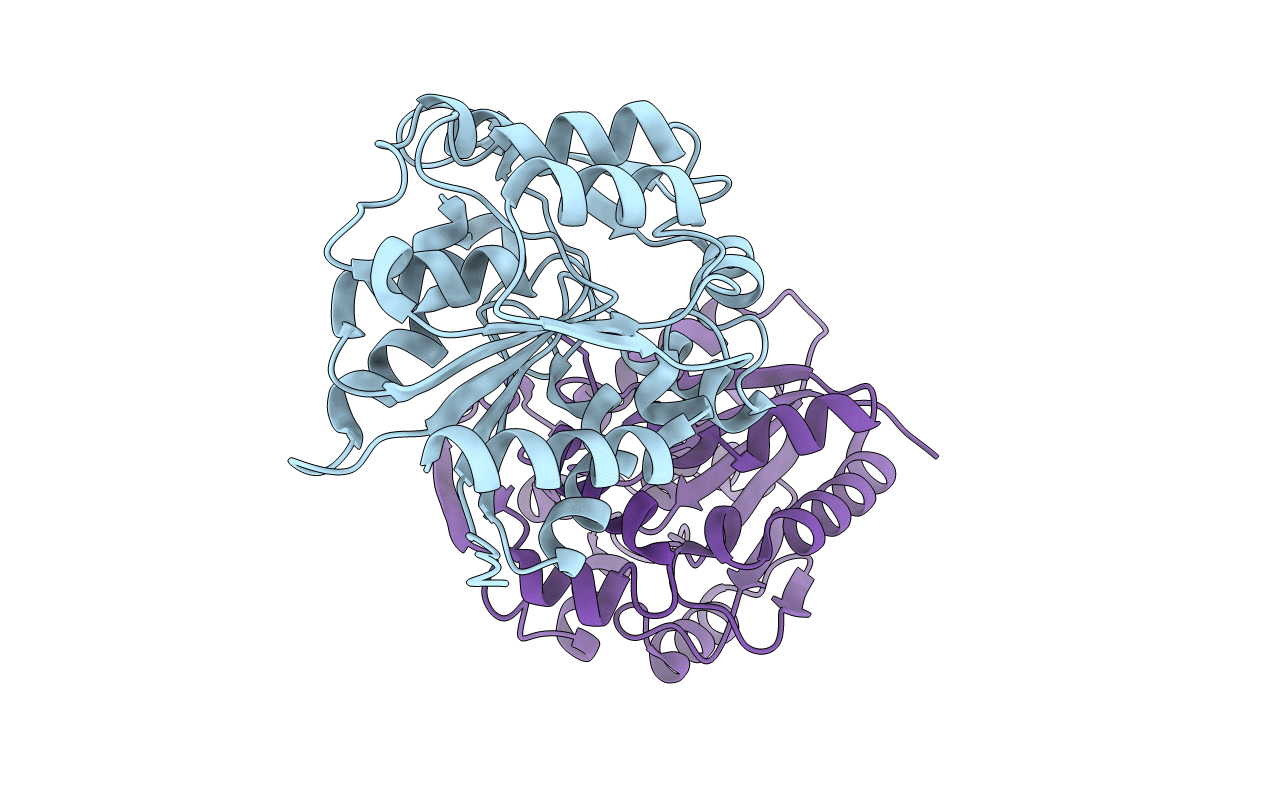
Deposition Date
2000-09-18
Release Date
2001-08-17
Last Version Date
2023-12-13
Entry Detail
PDB ID:
1E89
Keywords:
Title:
ON THE MECHANISM OF CYANOGENESIS CATALYZED BY HYDROXYNITRILE LYASE FROM MANIHOT ESCULENTA. CRYSTAL STRUCTURE OF ACTIVE SITE MUTANT SER80ALA IN COMPLEX WITH ACETONE CYANOHYDRIN
Biological Source:
Source Organism(s):
MANIHOT ESCULENTA (Taxon ID: 3983)
Expression System(s):
Method Details:
Experimental Method:
Resolution:
2.10 Å
R-Value Free:
0.21
R-Value Work:
0.18
R-Value Observed:
0.18
Space Group:
P 41 21 2


